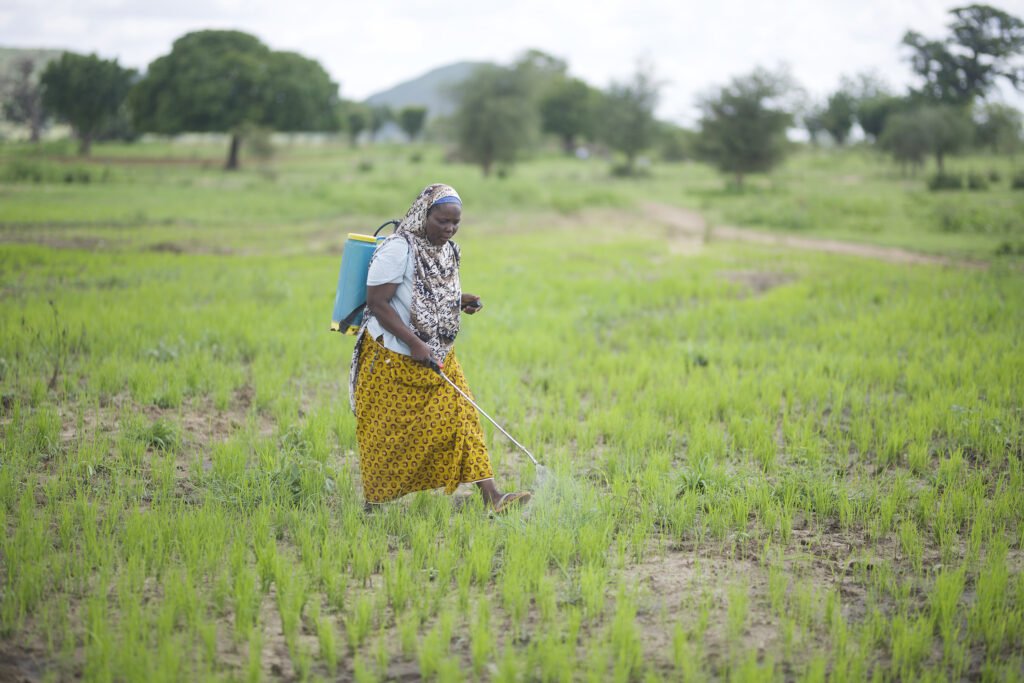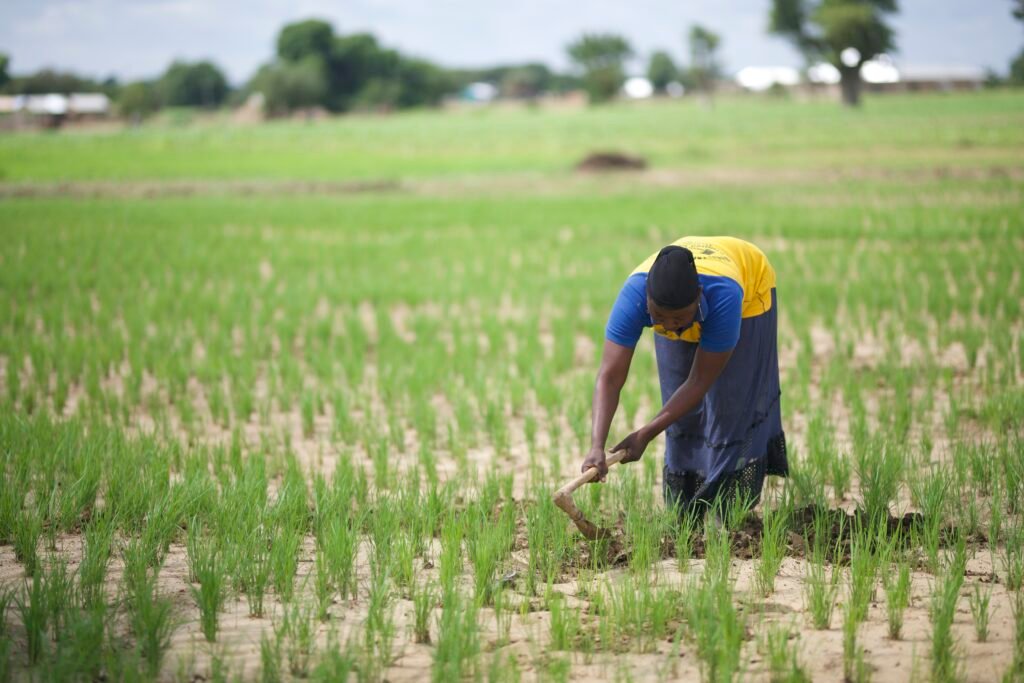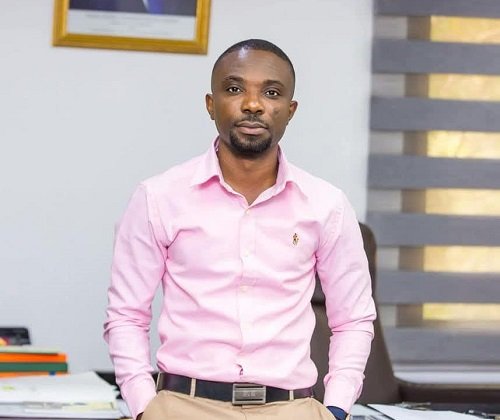Hot!
Women breaking gender inequality in Bawku West

Women working together
Faiza Osman is among many rural women farmers who are matchlessly, producing 70 per cent of Africa’s rice despite the many obstacles they face.
Majority of these smallholder farmers who are into agriculture in Gentiga, in Bawku West in the Upper East Region, continuously break gender disparity, climate change and financial exclusion barriers in order to support their husbands in taking care of their families.
Speaking to Madam Faiza on her farm close to the Red Volta, she said, traditionally, there is a gender productivity gap that mandates women to support their husbands in the morning and work on their personal farms in the evening.
“Due to limited access to land, technology, adaptation, domestic care work and financial support, we end up using our profits from the little farms to take care of the children,” she said.

She said, since majority of the women living in rural communities have no other employment than farming, they were compelled to work harder in order to support the family.
However, whenever there is a training or any financial support, it is the men who are considered first because the women were considered less privileged.
Madam Faiza believes that, if equal opportunities were given to both women and men, the women would produce more to feed the family and the nation as a whole.
Sherifatu Adam, a smallholder farmer in Tumu, urged the government and other agricultural institutions to give women equal opportunities in training, climate change education and financial support in order to expand their farms.
Mr Mahama Salifu, the District Agricultural Director at the East Mamprusi District in the Upper West Region, applauded the contribution of women smallholder farmers in producing to feed the nation.
He said, majority of the staple crops such as maize, rice and millet were produced by the women in smaller quantities but becomes so much when put together.
“With what I have witnessed so far, I believe that with additional support, they would be able to produce more to address food insecurity concerns of the country,” he said.
He said many of these women lack training, financial support as well as access to farmlands which hinder their capacity to produce more.
He commended Non-Governmental Organisations (NGOs) for their role in partnering with the government in the agricultural sector.
From: Geoffrey Buta, Gentiga
Hot!
Education free, but parents have roles to play – Anloga DCE

Madam Sandra Seyram Kpedor, the District Chief Executive (DCE) of Anloga in the Volta Region, has emphasised the importance of parental involvement in children’s education, stating that education is free, but parents need to do more to support their children.
She said parents, teachers, and students must be involved in addressing the challenges facing the district’s education sector, particularly the poor Basic Education Certificate Examination (BECE) results.
Madam Kpedor outlined some key roles parents should play to promote their children’s education, including providing a conducive learning environment, monitoring their children’s progress, and supporting teachers.
The DCE highlighted some challenges the district faced such as inadequate infrastructure and a shortage of teachers, which have also contributed to the poor BECE results and called on well-to-do parent to help solve the situation through and other supports.
To address the issues, she also announced that plans have been taken to utilise the district’s common fund to implement educational projects, such as constructing school blocks and teachers’ bungalows at Sodzi community, and 2-unit classroom blocks each at Akplorwutorkor and Tegbi-Afedome respectively, among others.
Madam Kpedor also noted that her office had earlier notified the Ministry of Education to deploy more teachers to the area to improve teaching and learning, and encouraged students to work hard and strive for excellence, and work beyond their limit to succeed.
“To my wonderful and beautiful girls, you have to know it clear that women and girls have equal opportunities to compete with men for greater achievements,” she indicated.
The DCE cited her own achievement as a testament to the fact that women can excel in leadership positions, alongside Vice President Nana Jane Opoku-Agyemang, and stressed that girls were no longer limited to domestic roles but can pursue their dreams and become leaders.
Additionally, she mentioned that a meeting was held earlier with assembly members, and other stakeholders to address the district’s educational challenges and improve academic performance.
She promised that the district’s education oversight committee and stakeholders would work together to address the challenges and improve the district’s BECE results and called for parental involvement and support to boost the district’s education sector for children to chase their dreams to become future leaders for the success of the district and the nation.
She urged parents not to leave everything to the government but rather help in the provision of some necessary materials such as textbooks, exercise books, pens, pencils, food, and guidance to children for the successes of young learners. –GNA
Join our WhatsApp Channel now!
https://whatsapp.com/channel/0029VbBElzjInlqHhl1aTU27
Hot!
Dennis Miracles Aboagye criticises NDC’s “no fee stress policy” implementation

The spokesperson for Dr. Bawumia, Dennis Miracles Aboagye, has criticised the implementation of the NDC government’s No Fee Stress policy, arguing that the programme has failed to deliver on its core promise.
According to him on Starr fm, the policy, which was introduced to ensure stress free payment of fees for level 100 tertiary students, has rather turned into what he described as post stress support.
He explained that students are required to pay their fees first before applying for reimbursement, a situation he believes defeats the purpose of the policy.
He questioned claims by government officials that the policy has been successful and that citizens are happy.
In his view, such claims do not reflect the lived realities of many Ghanaians. He stressed that while some people may appear satisfied, many others continue to struggle.
Dennis Miracles Aboagye pointed to the situation of trained teachers and nurses who have been picketing for nearly six months, demanding employment.
He noted that government responses suggesting it cannot accommodate all of them contradict claims of economic stability.
He further argued that economic indicators such as a stable currency mean little to people who are unable to secure jobs or access promised support.
He observed that telling an unemployed teacher or a struggling student that the cedi has strengthened does not address their immediate challenges.
On the issue of tertiary education, he maintained that no level 100 student benefited from stress free fees in 2025, despite the policy being announced.
He added that in 2026, students have already reported to school without receiving the promised support.
He insisted that asking students to pay fees first and seek reimbursement later amounts to support after hardship, not stress free education.
According to him, this approach goes against what was promised during the policy announcement.
Dennis Miracles Aboagye questioned why a government that presents the economy as strong is unable to fulfil what he described as simple and clear promises.
He added that there is a fundamental problem with the way the economy is being managed and indicated that he is prepared to explain his position further.
By: Jacob Aggrey







